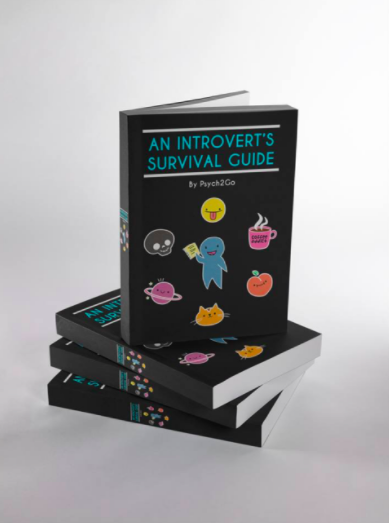5 Ways to Talk about Depression with Your Parents

Depression is already an exhausting and painful battle. Everyday chores get neglected, going to school and work becomes a struggle, and it’s hard to get out of bed every morning when your alarm goes off. The whole world is moving, except for you. It feels like someone pushed the pause button and your life stopped playing. You know you need to reach out to your parents, but how? You don’t want them to think you’re a drama queen (or king). “It’s fine,” you’re scared they’ll say, “you’re just having a bad week.”
Every day, they rush to get to work and come home to make sure dinner is prepared on time. You can feel the word HELP welling up inside your throat, but you don’t know how to cough it up without crying. Why is the world more preoccupied with painting normalcy instead of being vulnerable? We understand how intimidating it is to approach your parents when you need them the most. Psych2Go shares with you 5 ways to talk about depression with your parents:

1. Know that there’s nothing wrong with asking for your parents’ help.
There is still a strong stigma attached to mental health disorders like depression, which often makes people feel ashamed or embarrassed to talk about it, but know that you’re not alone. In fact, according to the World Health Organization (WHO), 350 million people worldwide suffer from depression. I know it may not seem like it when depression can be an all-consuming disorder that takes a lot out of you, but understand that it doesn’t define who you are. It’s just something that you are unfortunately participating in, which is why it is crucial to let your parents know that you need their support now more than ever. Your depression can distort your own self-perceptions that affects your self-esteem. It can also create the fear of being vulnerable, which is why you may have difficulty letting your parents know about your depression, but fear only has as much control as we allow it.

2. Get yourself in a calm state before starting the conversation with your parents.
You may feel scared, nervous, or overwhelmed before approaching your parents about your depression. It’s not an easy process, so give yourself some credit for being brave. This is a huge step you’re taking and you should be proud that you’ve acknowledged that you need their help. If you’re worried about having a breakdown or tearing up before any words can come out of your mouth, go out for some fresh air and take a walk to clear your mind or listen to some soothing music that can alleviate some of your anxiety. You can even invite your parents to go on the walk with you or go out for a relaxing drive that can lower your self-consciousness.
I find it easier to open up about my struggles after I introduce a movie to my friends and family with characters I can resonate with. It makes it easier for me to start the conversation when I can use an example I identify with before delving into my own problems. Shortly after the film ends, the plot is still freshly ingrained in our minds that helps them put themselves in my shoes.

3. Let your parents know that your depression is not their fault or a reflection of their mistakes, flaws, or failures.
One reason why kids or teenagers often feel reluctant to approach their parents about their depression is because they’re afraid their parents may take it the wrong way and start to blame themselves for not being “better parents.” We understand that the last thing you want to do is hurt your parents’ feelings or cause them to worry about you even more, especially if your family is already facing daily stressful situations, whether that involves finances, an illness, divorce, or work-related problems that bleed into your home. But understand that the effects of depression have been weighing you down and hindering your ability to perform your everyday tasks. If you continue to shrug it off and try to wait it out, your condition may worsen over time, which will concern your parents when the signs are harder to hide.
When my dad went away for a year to help out with a business 13 years ago and my mom took care of my brother and I by herself, I was afraid to tell her about the internal struggles I faced. I didn’t know how to tell her I felt unmotivated, lost, and confused. She was very high-strung during that period of her life, and I was worried about setting her off with my depression. But things worsened over time and she noticed I stopped eating. Looking back, I wish I told her sooner before things spiraled out of control. It wouldn’t have necessarily stopped my depression from worsening, and I’m not sure it would’ve brought us closer, but the way I closed myself off didn’t lead me down a path to get better either.

4. If you don’t want to approach your parents alone, you can talk to your guidance counselor or another professional and have them monitor the conversation.
If you are worried that you may need someone else by your side to help get the conversation flowing, you can make an appointment with your guidance counselor or another professional and invite your parents in one day to talk. Since professionals been trained to handle situations like this, they can also provide you with many valuable insights and offer helpful advice for you and your parents. The more support you receive, the better off you’ll be because you won’t have to battle your depression alone. Talking to a professional can also open the door for your parents to reach out if they wish to express their concerns and seek answers for questions that may come up.

5. Let your parents know what you need from them and brainstorm a plan with them that can help you recover from your depression.
Communication is key. Your parents aren’t mind readers, so let them know what to expect and what you need from them. Understand that recovery is never a straightforward path, and inform your parents, too. Even if your parents may not always understand where you’re coming from, they can still try. Together, you can brainstorm ways that can help you get better. Let them know that you are overwhelmed and that you may not be sure where to start.
You and your parents can create schedules that help you focus on one task at a time that don’t require too much of your energy. Starting small is encouraged. Once you feel more capable of getting back into the swing of your usual routine, you can begin to include more activities in your schedule. Depression can slow you down, but your will to go on is what ultimately pulls you out of that darkness.
Do you have difficulty talking about depression with your parents? We understand that it’s not easy and would love to hear your thoughts. Please be sure to leave a comment down below!
Want to say hello or send a personal message? You can reach the author at catherine@psych2go.net. ♥
If you enjoyed this article, then you may also like 5 Ways Parents Can Raise Their Kids to Be More Confident and Less Self-Conscious or 7 Ways An Introvert Can Help Their Extroverted Parents Understand Introversion.
Looking for more reading supplies? Please check out our new e-book: An Introvert’s Survival Guide! Get your free copy today!

Love our content and want to continue supporting us? Visit our Patreon!
References:
Depression and Mental Health by the Numbers: Facts, Statistics, and You. (2018). Retrieved March 8, 2018, from www.healthline.com
Ehmke, R. (2018). How to Talk to Your Parents About Getting Help. Child Mind Institute. Retrieved March 8, 2018.
Lyness, D. (2016, August). Talking to Parents About Depression. Retrieved March 8, 2018, from https://kidshealth.org



This post misted my eyes